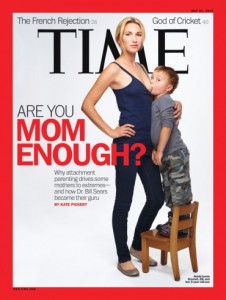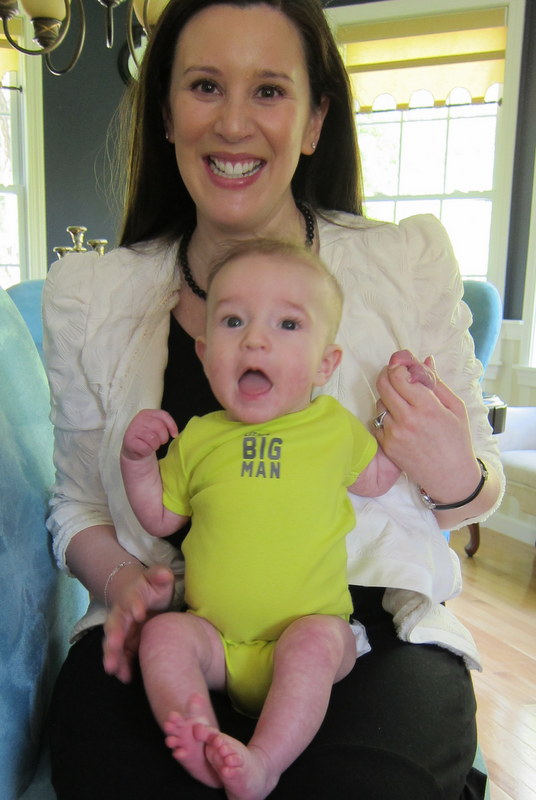I've been studying parenting for about a decade now as a sociologist. I always strive to contextualize families and their parenting decisions by thinking about both the micro and macro structures that impact people's everyday lives. Now that I'm a mom that hasn't changed. I know that not everyone will make the same decisions that I make, and I won't make the same decisions as others. But just as I do in a professional context I strive not to be judgmental and instead understand where people are coming from-- and I like to start from the position that parents are making decisions with the best interests of their children in mind, even if those interests may at times be ill-informed and thus perhaps misguided. (Of course this has it limits, like if a child was being abused, but thankfully I have never been in that position.) That's why I like to think of myself as a pacifist in the midst of the latest iteration of the Mommy Wars. As a nursing mom who is (trying to) work three to four days a week, I understand both how hard it is to stay-at-home and how hard it is to work. As with anything in life, it's hard to find a balance. That's why the most recent saga in the Mommy Wars seems to vex so many: it doesn't appear to provide much balance, especially for mothers.
The latest drama is attachment parenting, which isn't really that new, but has become so talked about thanks to celebrity endorsements (like Mayim Bialik's new book, Beyond the Sling: A Real-Life Guide to Raising Confident, Loving Children the Attachment Parenting Way. Originally popularized by a physician-husband and nurse-wife team in the 1990s, William Sears' 2001 The Attachment Parenting Book spelled out the tenets of extended on-demand breastfeeding, baby-wearing, and co-sleeping. But it's the latest, highly controversial cover of Time that has really vaulted the philosophy into the popular consciousness. If you haven't yet seen it, here it is:
Last week I appeared on NECN's The Morning Show to talk about the controversy and offer common sense advice to moms.
[I couldn't miss the irony that after doing the show I raced home to feed Little Man!]
The title of online piece about my appearance, "Harvard sociologist: Time Magazine cover 'shocking,'" is a bit misleading-- though it clarifies that I state that the cover was meant to deliberately shock. The photographer himself said that he wanted to be provocative. Martin Schoeller is quoted: "I liked the idea of having the kids standing up to underline the point that this was an uncommon situation.”
Jamie Lynne Grumet is the 26-year-old mother pictured feeding her almost four-year-old son, and even she says she knew that the magazine was going to go out of its way to be controversial and generate conversation. Grumet has become an overnight celebrity, criticized by both breastfeeding proponents and opponents (though with a recent picture on TMZ, can a reality show be far behind?). She seemed to know what she was getting herself into and I don't think we should be blaming her. We don't know her exact family situation, and if this works for her so be it.
We know from anthropologists that in many parts of the world toddlers are breastfed-- I'm guessing not while standing up, but you never know. In the US we have so much (and perhaps sometimes too much) food readily available so in some ways it's less necessary for kids to rely on breastmilk to get proper nutrition to grow. In any case breastmilk certainly is a relatively free way to nourish a child-- though extraordinarily time-consuming (eta: Yes, time is money, so ultimately it costs lot; but not out-of-pocket like formula at the moment)-- and until six months the science tells us that it does more than just give calories, it actually helps boost a child's immune system by passing on antibodies through the mother.
I tend to trust good science, based on randomized experiments and solid laboratory work. I also tend to trust my body and my baby to figure out what is healthy and good. What I don't tend to trust are labels. When you label your behavior it just sets you up in opposition to others, as I mention in the clip. One of the things I found most interesting about Pamela Druckerman's parenting hit from earlier this year, Bringing Up Bebe, is that in Paris parents don't "subscribe" to particular parenting philosophies. They just parent. She claims it's American parents who tend to want to clearly identify and research particular schools of thought.
The US certainly has a long tradition of producing parenting experts and philosophies. Starting about 100 years ago, roughly in the 1920s as an outgrowth of Progressive politics and baby-saving, scientific parenting became popular. And since then various pockets of "scientific" parenting have waxed and waned. If you're interested in these historical social trends check out books like Perfect Motherhood: Science and Childrearing in America, Raising Baby by the Book: The Education of American Mothers, and Raising America: Experts, Parents, and a Century of Advice About Children. My personal favorite is historian Peter Stearns' Anxious Parents: A History of Modern Childrearing in America.
In the end mothers need to use common sense, know themselves, their partners, and their children and find the happy balance that works for them—and not worry what the mommies around them are doing. It’s hard enough today without fighting a new type of mommy war! Although I must confess that I hope if Carston ever appears on live TV at age three or four he'll be slightly better behaved...

